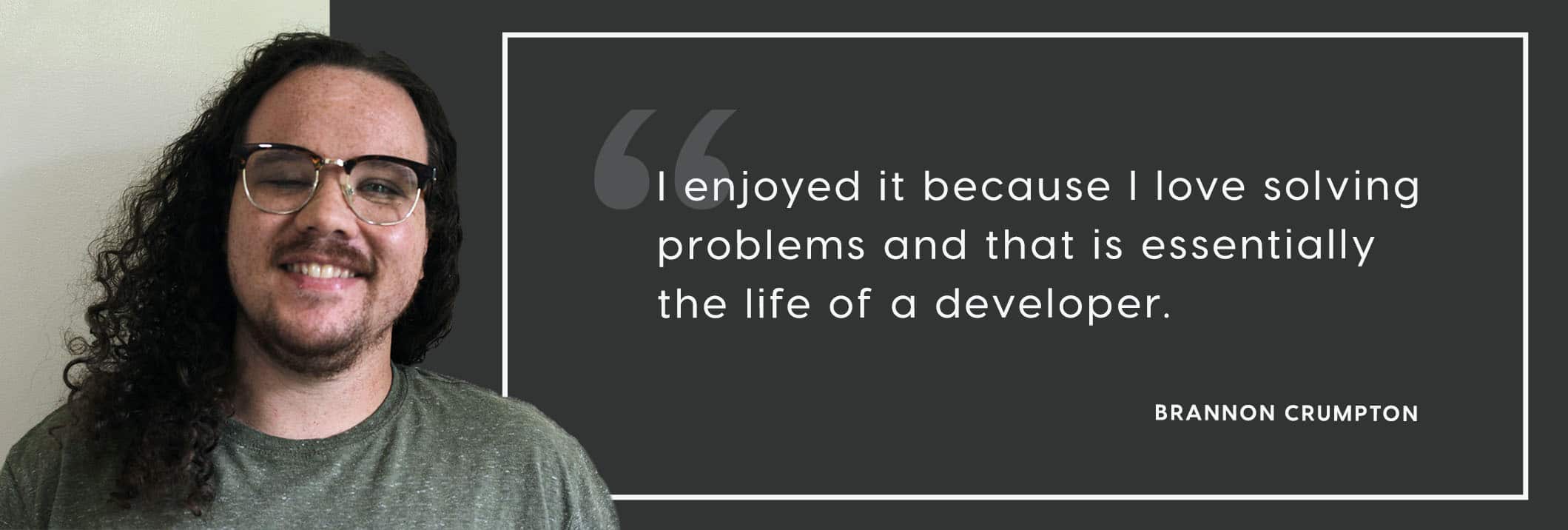If you don’t have one website, then you probably have four. You may even have tried to build one yourself—sans professional training. Not to state the obvious here, but your website is IMPORTANT if you have a business. That’s why we’ve compiled this list of web development FAQs answered by one of our expert site builders.
Potential customers will quickly judge your online presence to determine if you have what it takes to suit their needs—with little opportunity for a second chance.
The process of building a website from scratch is enigmatic if you’re unfamiliar with the terminology. Web developers speak their own language—literally!
Luckily, we have a super talented developer on staff who can clear up any questions that you may have about web development in plain English.
So, what should we know about web development?
Ask a pro: Astute Co. Web Developer, Brannon Crumpton (BC).
So, Brannon, we all have our passions. What drew you into the sultry lifestyle of a web developer? Why do you enjoy it?
BC: I flirted with the idea of becoming a developer for a long time. It originally came as a safety net career that I could use to support myself while playing music.
It took me a long time to pull the trigger and dive in. I enjoyed it because I love solving problems, which is essentially a developer’s life.
I’ve always really enjoyed being able to solve issues myself and really cherished the independence of it. This was that but on a much larger scale.
There is a lot of jargon surrounding the tech world. Talk to me about the differences between CSS, HTML, and Javascript. Is every developer skilled in each style?
BC: Those three go hand in hand. They all have a web browser in common. You would rarely see any two of these without the other. The best analogy for discussing these three is using a house as an example.
HTML is the structure of the house and how the house may be laid out. In this same way, HTML lays out the structure of a page. CSS is going to be the style of your house. These things might be the paint, the furniture, the cabinets, etc.—design aspects.
CSS enables you to make your page pop in a new and refreshing way. Javascript is going to be the part that makes any of it interactive. The electricity that brings all your appliances to life would be a good example of JS on a website.
If you’re a developer working in a web browser, all three of these languages are necessary.
What are some user details that you consider when developing sites for clients?
BC: You have different types of sites that are being built in the marketing world. E-commerce and lead generation are the two biggest categories I’ve come across as a developer.
This is a huge detail to know when beginning a site build. Is the client tech-savvy? Can they manage their own content? If so, they will need a content management system (CMS).
There are many flavors out there, but the most widely used and the one we use primarily at Astute is WordPress.
What programs do you prefer?
BC: Largely depends on what type of site I am working on but a common tool regardless of the type of site is VS Code. It’s a text editor made by Microsoft. It is very popular among developers and because of that, there are lots of extensions to customize it how you need.
When building with WordPress, a tool called Local by the web hosting company Flywheel is also invaluable. It recreates WordPress on my specific machine. This allows me to be able to work in a nimble and efficient way.
What’s your take on website builders such as Squarespace? What are the benefits of a custom build from an agency over a service like that?
BC: Website builders are great tools that have enabled many people who aren’t as technically and specifically skilled as a developer to build a website. Everyone should be able to participate in this world and Squarespace and many other companies of the like have enabled that!
That being said, you’ll eventually hit a wall when it comes to customizing sites to your needs with website builders. They are targeted in the most general way to fit the needs of many people.
You’ll want a custom website build if you need more than what they can offer.
How do you know when you’re done?
BC: This is the question of my development career. This is so hard to know. The last 20% of a build can take just as long as the first 80%.
A really great QA team running out of feedback lets you know you’re done, but the ultimate indicator is when the client is happy and no longer asking for changes. Website builders have enabled many people to build websites.
The factor that separates a web development agency from a service like Squarespace is executing all the fine details that don’t always come as a part of a website-building service.
What would you say if you were to describe what you do to a 5-year-old?
BC: I help people do more fun and interesting things with their phones, computers, and tablets.
Thanks, Brannon! We hope you’ve found this list of web development FAQs useful!
